The goal is to institutionalize and fully implement the viewpoints, goals, tasks and solutions set forth in Resolution No. 71-NQ/TW.
Unify the action program, identify specific tasks for ministries, branches, agencies and localities to develop action plans, organize implementation, inspect and evaluate the implementation of Resolution No. 71-NQ/TW;
Realize the goal of expanding equitable access, improving the quality of preschool and general education to reach advanced levels in the Asian region; improve the capacity and quality of human resource training to meet the requirements of the country's socio -economic development; elevate higher education institutions to become national centers of knowledge and innovation so that by 2035 the education and training system will continue to be modernized, with strong and steady progress in access, equity and quality. By 2045, Vietnam will have a modern, equitable and high-quality national education system, ranked among the top 20 countries in the world.
In order to achieve the goals set out in Resolution No. 71-NQ/TW, ministries, ministerial-level agencies, government agencies, and People's Committees of provinces and centrally-run cities continue to effectively implement Resolution No. 29-NQ/TW on fundamental and comprehensive innovation in education and training, Conclusion No. 91-KL/TW continues to implement Resolution No. 29-NQ/TW and organize the drastic, effective, and synchronous implementation of the following tasks:
Firstly, raise awareness, innovate thinking and action, and determine strong political determination to make a breakthrough in education and training development.
Ministries, sectors, agencies and localities: participate with the Central Propaganda and Mass Mobilization Commission to organize a national conference to study and disseminate Resolution No. 71-NQ/TW under the direction of competent authorities. Raise awareness, determine political determination, place education and training development in the mindset of national governance, social governance associated with orientation, planning, and socio-economic development strategies. Make the viewpoints, goals, tasks, and solutions for education and training development a focus in the strategies, planning, policies, programs, and development plans of ministries, sectors, agencies, and localities and prioritize the allocation of resources for implementation.
Lead, direct and raise awareness of civil servants, public employees and workers in educational management agencies, educational and training institutions on innovation in management thinking and methods of action, shifting from administrative management and pre-control to management and governance based on standards, evidence, outputs and quality culture. Focus on building a sustainable internal quality assurance system in educational institutions and continuous improvement in quality.
The Ministry of Education and Training shall preside over and coordinate with ministries, agencies and localities to develop, promulgate and implement a Plan for regular and extensive dissemination of Resolution No. 71-NQ/TW in the direction of diversifying forms and specifying dissemination content. Advise competent authorities to promulgate regulations and guidelines for implementing the policy of not organizing school councils in public educational institutions (except for public schools with international agreements); and implement the Party Committee Secretary as the head of the educational institution.
The Ministry of Culture, Sports and Tourism directs press and media agencies to increase the duration and quality of news and articles to propagate the implementation of Resolution No. 71-NQ/TW and the Party's guidelines and the State's policies on breakthroughs in education and training development; consistently demonstrate the viewpoint that education and training is the top national policy, deciding the future of the nation; developing education and training is the cause of the Party, the State and the entire people.
Second, strongly innovate institutions, create unique and outstanding mechanisms and policies for education and training development.
Specifically, ministries, agencies and localities: review and complete legal regulations, fully concretize the Party's policies and guidelines, promptly remove bottlenecks and bottlenecks in institutions, mechanisms and policies in an open, flexible, interconnected and synchronous manner; advise on the promulgation of specific and outstanding policies, prioritize budget allocation to implement breakthrough regimes and policies, improve the quality and effectiveness of law-making and enforcement, promote innovation and create development in education and training.
Continue to promote decentralization, delegation of authority, and division of functions and tasks in a substantive and in-depth manner, linking authority with responsibility, and clearly defining the mechanism of decentralization and delegation of authority.
Strengthen the leading role of state management agencies on education and training, and specialized agencies to assist provincial people's committees in performing assigned tasks to improve the effectiveness of state management on education and training.
Strengthen and improve the quality of direction, inspection and supervision of the institutionalization of Party policies and the implementation of State policies and laws in the field of education and training.
Review and adjust planning to prioritize clean land funds, focus on site clearance, and allocate clean land to education and training projects to ensure sufficient area according to prescribed standards; localities prioritize the arrangement of surplus state agency headquarters after reorganization for education and training facilities.
The Ministry of Education and Training shall preside over and coordinate with ministries, agencies and localities to develop and complete the following Law projects: Law amending and supplementing a number of articles of the Law on Education, Law on Higher Education (amended), Law on Vocational Education (amended) and detailed regulations. Urgently develop a Resolution of the National Assembly promulgating the National Target Program on modernization and improvement of education and training quality for the period 2026 - 2035 and a Resolution of the National Assembly on specific mechanisms and policies to implement Resolution No. 71-NQ/TW.
Develop documents regulating policies on recruitment, employment, training, and fostering of teachers and educational administrators, and salary, allowance, and special and outstanding incentive policies for teachers.
Amending and supplementing regulations on compulsory education after junior high school and universal education in accordance with development requirements in the new period; tuition fee policies, exemption, reduction, tuition fee support, support for learning costs and service prices in the field of education and training; conditions for investment and operation in the field of education; policies to encourage socialization and diversification of investment resources for education and training; cooperation and investment with foreign countries in education and training.
Develop regulations on policies for students of boarding schools in border communes; career guidance and education streaming in each stage in accordance with the requirements of socio-economic development; autonomy of training institutions, ensuring full and comprehensive autonomy for higher education institutions and vocational training institutions, regardless of the level of financial autonomy; specific autonomy mechanisms for a number of key national training institutions; regulations on co-staff lecturers for excellent people working at public service units; regulations on the "State - School - Enterprise" cooperation mechanism in education and training, science, technology and innovation.
Advise on the establishment and promulgation of regulations on the organization, management and use of the National Scholarship Fund from the state budget and other legal sources. Complete mechanisms and policies to effectively promote other scholarship and learning encouragement funds to encourage learning and develop the education career.
Amend and supplement regulations on guest lecturers in educational institutions; develop regulations on appropriate contract and guest lecturer mechanisms to mobilize talented people outside the teaching force to participate in teaching and training in educational institutions.
Amending and supplementing regulations on standards, conditions, recruitment, appointment and dismissal procedures for the titles of Professor, Associate Professor and lecturers in accordance with international practices and Vietnamese reality; recruitment, hiring of lecturers and appointment of professional management positions for talented people from abroad; ordering and assigning tasks to key sectors and fields based on output results; developing and implementing the Talent Training Project, prioritizing basic sciences, engineering and technology.
Amend and supplement regulations on upgrading educational facilities at all levels, regulating minimum areas, standards and criteria to gradually approach regional and international standards.
Complete regulations on the structure of the national education system in an open direction, ensuring connectivity, promoting lifelong learning and building a learning society.
Develop regulations to promote entrepreneurship and innovation among learners and activities to support learners in starting businesses and creating jobs; build spaces and ecosystems for entrepreneurship and innovation among universities and vocational education institutions.
The Ministry of Finance shall preside over and coordinate with ministries, agencies and localities to amend and supplement regulations to expand financial support policies and preferential credit for learners and educational and training institutions, with priority given to basic sciences, engineering and technology.
Amend and supplement relevant legal documents to add regulations on not collecting land use fees, reducing land rent and land tax for domestic educational institutions; not applying corporate income tax to public educational institutions and private educational institutions operating not for profit; regulate flexible conversion of land use to educational land; allow the application of the form of leasing state-owned works to private educational institutions.
Advise and submit to competent authorities to allocate state budget for education and training to reach at least 20% of total state budget expenditure, of which investment expenditure allocation reaches at least 5% of total state budget expenditure and expenditure for higher education reaches at least 3% of total state budget expenditure.
Review and adjust relevant laws, ensure reduction of administrative procedures on budget preparation, budget allocation, state budget settlement and supplement regulations on state budget allocation to higher education institutions and vocational education institutions based on mission, quality and efficiency according to a unified mechanism; prioritize credit capital for education and training development projects.
Develop and promulgate regulations to form, manage and use funding funds for educational institutions mobilizing community capital.
The Ministry of Home Affairs shall preside over and coordinate with relevant ministries and agencies to review, amend and supplement current legal regulations on civil servant management, ensuring consistency and synchronization with the provisions of the Law on Teachers. Amend and supplement regulations to reduce the number of management agencies for educational institutions, ensuring the principle of linking professional management responsibilities with personnel and financial management.
The State Bank of Vietnam is in charge of developing regulations on expanding credit products and preferential credit for lecturers and learners to implement start-up and innovation projects, establish start-up companies and start-up companies; prioritize credit capital for education and training development projects.
Third, strengthen comprehensive education in ethics, intelligence, physique, and aesthetics, forming a system of values for Vietnamese people in the new era.
Accordingly, the Ministry of Education and Training shall preside over and coordinate with relevant ministries and agencies to amend and supplement regulations on moral education and personality of learners to form a system of standard values of Vietnamese people. Develop and implement regulations on the roles, responsibilities and coordination mechanisms between families, schools and society in moral education and personality of learners; have mechanisms for students to study and experience activities on ideology, tradition, ethics, physical education, aesthetics, career education, soft skills through the participation of experts, artisans, artists, coaches and athletes.
Strengthening political, ideological, ethical, lifestyle, life skills, and school culture education in schools; building and effectively implementing models of ethical and lifestyle education, institutions, and school culture models.
Innovate teaching methods and forms, improve the quality and effectiveness of the subject of National Defense and Security Education; propagate, disseminate, and educate the law, guide the implementation of regulations on ensuring political security, social order and safety, and raise citizens' sense of responsibility for the cause of national construction and defense.
Develop and implement regulations to improve school nutrition and develop physical education in educational institutions; innovate forms and methods of physical education to contribute to improving the physical strength and stature of Vietnamese people, linking physical education with knowledge, ethics and life skills education, meeting the requirements of building and defending the Fatherland.
The Ministry of Public Security develops solutions to prevent and minimize negative impacts from market mechanisms, media, and social networks on students; prevent, repel, and eventually end school drug use.
Fourth, comprehensive digital transformation, popularization and strong application of digital technology and artificial intelligence in education and training:
The Ministry of Education and Training presides over and coordinates with relevant ministries and agencies to: develop a Data Strategy to serve digital transformation in the education sector; develop a national smart education platform applying controlled artificial intelligence. Build an information system to serve the management and operation of the education sector and regulations on data management in the field of education and training.
Building and deploying smart digital education applications and tools such as smart textbooks, smart curricula, shared learning materials, mass open online learning platforms, virtual laboratories and practices, modern online testing and assessment systems towards smart classrooms and smart schools.
Develop and deploy a synchronous database of digital diplomas for general education, vocational education and higher education. Develop and deploy digital competency and artificial intelligence standards for learners, teachers and education managers at all levels.
Develop and effectively implement mechanisms and policies to encourage and mobilize businesses and higher education institutions to participate in training learners, teachers and managers in digital capacity and artificial intelligence. Improve the quality and efficiency of providing online public services throughout the process, ensuring 100% online public services in the field of education and training.
The Ministry of Finance advises on allocating sufficient resources to invest in facilities and technological infrastructure to meet the requirements of digital transformation, popularization and application of digital technology and artificial intelligence in management and organization of educational and training activities at all levels nationwide.
The Ministry of Home Affairs shall preside over and coordinate with relevant ministries and agencies to build a labor market and employment information system integrated with scientific, technological and innovative information of educational institutions, and a national education and human resources information system to assess and forecast human resource supply and demand, effectively serving the management and operation work and improving the quality of education and training.
Fifth, focus on building a team of teachers and standard school facilities, improving the quality of preschool and general education:
The Ministry of Education and Training presides over and coordinates with relevant ministries and agencies to develop a new preschool education program, enhance practical education methods, STEM/STEAM experiences, play spaces, physical training environments, and comprehensive skill development for preschool children.
Review and complete the General Education Program, increase the duration of science, technology, information technology, and arts subjects; ensure the provision of a unified set of textbooks nationwide for use from the 2026-2027 school year; implement the roadmap to provide free textbooks to all students by 2030.
Continue to innovate assessment and evaluation methods, ensure honest assessment of learning and teaching outcomes; synchronously implement solutions to overcome the widespread situation of extra teaching and learning.
Amend and supplement regulations on the organization and operation of specialized schools and gifted schools to focus on nurturing national talents and expanding specialized STEM/STEAM classes. Develop a program to discover, train, foster and use talents with long-term strategic significance for the country.
Effectively organize the enhancement of foreign language teaching and learning, gradually making English the second language in schools; teach languages of neighboring countries and teach subjects in English in places with conditions.
Amending and supplementing regulations on national standards and regulations on facilities and teaching equipment of kindergartens and general schools towards synchronization, safety, friendliness and modernity.
Develop special incentive mechanisms and policies to attract excellent students to study pedagogy and improve the quality of training and fostering of teachers and educational managers. Expand training programs and projects, develop teachers, and increase support for teachers to study and improve their qualifications domestically and abroad.
The Ministry of Home Affairs shall advise competent authorities to arrange sufficient staff of teachers and school staff according to prescribed norms, suitable for each school year, especially for preschool and general education levels.
The Ministry of Finance advises on budget allocation for investment in building facilities, purchasing teaching equipment; preferential policies for teachers and learners and providing free textbooks for all students according to the roadmap.
The Ministry of Construction reviews and inspects construction planning and ensures land funds for building schools, classrooms, and public housing for teachers; promptly develops and completes the overall design and sample design options for inter-level schools in border communes for localities to implement, in accordance with the conditions of each region and locality.
Localities: ensure adequate investment resources for local education and training; care for children's education from the earliest stages of life, prepare adequate conditions to implement universal preschool education for children from 3 to 5 years old; ensure access to education and improve the quality of education in areas with particularly difficult socio-economic conditions, especially ethnic minority, mountainous, border and island areas.
Arrange sufficient staff and recruit sufficient number of teachers and school staff according to prescribed standards; strengthen training and fostering of teachers and educational managers in the locality.
Focus resources on investing in solid construction and modernization of schools and classrooms; ensure adequate facilities and equipment that meet standards, especially focusing on investing in practice classrooms, STEM/STEAM experiences, play spaces, and physical training environments; prioritize the arrangement of surplus agency headquarters after the arrangement for educational and training facilities. Organize the construction of public housing, creating favorable conditions for teachers from far away to work.
Implement planning, investment, and development of a system of specialized schools, especially boarding and semi-boarding schools and educational facilities for students with disabilities, ensuring that each locality has at least one specialized educational facility up to high school level.
Sixth, reform and modernize vocational education, creating a breakthrough in developing human resources with high vocational skills:
Accordingly, ministries, agencies and localities: arrange and reorganize the vocational education system to ensure streamlining, efficiency, increase in scale, structure and rationality in terms of industry, occupation, training level, standardization, modernization to meet the human resource needs of the labor market and in accordance with the planning of the vocational education network. Strongly decentralize the management of vocational education institutions to local authorities.
Forecast human resource needs and prioritize budget allocation from the state budget for training highly skilled human resources in technical and technological fields and serving national strategic and key programs and projects .
The Ministry of Education and Training shall preside over and coordinate with relevant ministries and agencies to: develop and implement the Project on developing a system of high-quality vocational education institutions that meet international standards and focus on effectively implementing the Vocational Education Institution Network Plan for the period 2021 - 2030, with a vision to 2045; continue to innovate, develop and improve the quality of vocational education to 2030 with a vision to 2045.
Develop regulations and implement vocational secondary education for those who have completed lower secondary education and develop a set of criteria for assessing and recognizing learners' accumulated vocational capacity.
Develop policies to attract experts and highly skilled workers to participate in teaching and instructing vocational skills; a mechanism to order and assign training tasks for teachers and vocational education lecturers from the state budget.
Perfecting mechanisms and policies to promote school-enterprise linkages, encouraging enterprises to establish vocational training institutions, establishing human resource training funds, promoting retraining and advanced training for the workforce, especially vocational skills training in high-tech fields.
Direct and guide vocational training institutions to strongly innovate training programs and methods, apply technology, and manage quality, ensuring effectiveness and substance according to international standards. Develop and implement high-quality vocational training programs for ethnic minorities in appropriate occupations .
The Ministry of Home Affairs completes the national labor market information data system and provides guidance on organizing regular job exchanges.
The Ministry of Finance shall preside over and coordinate with ministries, agencies and localities to: amend and supplement regulations on prices in vocational education, place orders or assign training tasks to vocational education institutions (regardless of ownership form) to implement training programs for highly skilled human resources in technical and technological professions, professions serving national strategic and key programs and projects.
Seventh, modernize and improve university education, create breakthroughs in developing highly qualified and talented human resources, and lead research and innovation:
Ministries, agencies, and localities: review and adjust plans to prioritize clean land, focus on site clearance, and allocate clean land for projects to expand space for developing higher education facilities.
Research mechanisms and policies to encourage the development of high-tech urban areas - universities, prioritize investment in developing higher education institutions according to the model of innovative universities, new generation technology universities, becoming the locomotive and core in the innovation ecosystem of the regions.
The Ministry of Education and Training presides over and coordinates with relevant ministries and agencies to develop and implement the strategic framework for higher education development for the period 2026 - 2035, with a vision to 2045.
Develop and implement a project to arrange and restructure the system of higher education institutions, merge and dissolve substandard higher education institutions; Research project to merge research institutes with higher education institutions; regulate the organizational structure of higher education institutions to eliminate intermediate levels, ensuring streamlined, unified and effective governance. Focus on effectively implementing the Higher Education Network Planning for the period 2025 - 2035, with a vision to 2050, demonstrating the core role in the innovation ecosystem of regions and localities, providing high-quality human resources and talents to meet the requirements of key sectors and fields.
Develop mechanisms and policies to strengthen state management of higher education institutions; study the transfer of some universities to local management to improve management efficiency and better meet local human resource training requirements.
Organize the implementation of investment projects under the National Target Program on modernization and improvement of education and training quality for the period 2026 - 2035, ensuring the modernization of technical infrastructure, expanding development space for higher education institutions to operate effectively; focus on investing in upgrading facilities, laboratories, building excellent training and research centers at key higher education institutions and teacher training institutions.
Develop a project to implement strong investment mechanisms and policies and have specific, outstanding mechanisms to develop 3 to 5 elite universities following the model of world-class research universities, training national talents.
Amend and supplement regulations on scientific, technological and innovation activities in higher education institutions; in which, clearly stipulate the encouragement of talented people to preside over scientific research activities in educational institutions, ensuring priority allocation of funding for scientific research, especially basic research associated with postgraduate training. Amend and supplement regulations on preferential policies and support for people going for training in the field of atomic energy.
Amend and supplement regulations on improving the capacity of lecturers and managers of higher education institutions, including increasing support for lecturers to study to improve their qualifications domestically and abroad. Effectively implement projects on human resource training and talent training, especially human resources in key areas and human resources from ethnic minorities.
Develop a project to implement a policy testing mechanism to promote research, development, application, and transfer of strategic technology in the education and training sectors.
Direct and guide higher education institutions to innovate training programs according to international standards; integrate content on data analysis and artificial intelligence, entrepreneurship and startups. Have special mechanisms and policies to support the expansion of talent training programs, postgraduate training linked with scientific research, innovation in basic sciences, engineering and technology, serving the development of strategic technologies, priority technologies of industry 4.0, national key projects. Link training activities with research, development of science, technology, innovation, national digital transformation.
Develop effective support policies and mechanisms for lecturers and learners to implement start-up and innovation projects, establish start-up companies, and start-up companies in higher education institutions.
Develop and implement the Project to innovate university admissions in the direction of properly assessing learners' capacity, ensuring unified control of input standards of training majors and training institutions, and strictly controlling output quality.
Amend and supplement regulations to strengthen quality management in conjunction with appropriate policies to support doctoral training, training in pedagogy, health, law and key industries; develop and promulgate standards for master's and doctoral training programs in pedagogy, health, law and key industries; develop policies and mechanisms to support training in pedagogy, health, law and key industries.
The Ministry of Finance presides over and coordinates with ministries, agencies, and localities: presides over the development of financial support policies for lecturers and learners to implement start-up and innovation projects, establish start-up companies, and start-up companies.
Amend and supplement preferential policies to support effective implementation of State-School-Enterprise cooperation, creating a clear legal corridor for public-private partnership models in training, scientific research, innovation and startups.
The Ministry of Science and Technology shall preside over the review and update of the List of strategic technologies and strategic technology products.
The Ministry of Home Affairs shall preside over the review and promulgation of regulations governing doctoral studies for officials and civil servants.
Eighth, promote deep international cooperation and integration in education and training:
The Ministry of Education and Training shall preside over and coordinate with relevant ministries and agencies to expand, diversify and deepen international cooperation mechanisms in education, training and scientific research. Promote negotiations and signing of agreements and treaties on cooperation in education, training, science and technology; participate in organizations to ensure quality and develop international education.
Complete regulations on scholarships and policies to encourage and support students and lecturers to study, research and lecture in developed countries, countries with traditional relations, and countries with strengths in key fields and industries, taking advantage of bilateral cooperation programs.
Develop breakthrough mechanisms and policies to attract foreign experts, scientists and overseas Vietnamese to work, teach and conduct scientific research at Vietnamese educational institutions.
Complete mechanisms and policies to effectively support higher education institutions in cooperating and linking with prestigious universities and large enterprises abroad, especially in key areas and emerging technologies; encourage cooperation and training links according to digital and cross-border education models.
Perfecting mechanisms and policies to promote foreign investment attraction in the fields of higher education and vocational education; promoting cooperation and association to establish joint training units and research institutes with Vietnamese educational institutions.
Strengthen quality management, promote education in Vietnamese language, history, culture, geography and people in educational institutions and educational programs with foreign elements. Strengthen the application of international standards in the national education system in accordance with Vietnam's conditions and circumstances.
Develop policies to encourage and support Vietnamese educational institutions to establish branches, open representative offices or implement educational programs abroad; promote cooperation, expand Vietnamese language teaching, and spread Vietnamese cultural values and traditions abroad, especially in the overseas Vietnamese community.
The Ministry of Foreign Affairs shall preside over and coordinate with relevant ministries and agencies to build a database of overseas Vietnamese working in the fields of science and technology to serve the work of planning high-quality human resource policies.
The Ministry of Public Security completes regulations on ensuring cultural security in educational institutions and educational programs with foreign elements.
Implementing organization
Based on the contents of Resolution No. 71-NQ/TW and the Government's Action Program, ministries, ministerial-level agencies, government agencies, and People's Committees of provinces and cities, according to their functions and tasks, shall develop, promulgate and organize the implementation of a plan to implement Resolution No. 71-NQ/TW and the Government's Action Program in October 2025.
Ministries, ministerial-level agencies, Government agencies, People's Committees of provinces and cities are responsible for reviewing programs and action plans to implement the Party's Resolutions and the Government's Action Programs that have been issued and are still in effect related to education and training to adjust and synchronize with the programs and action plans to implement this Resolution, to be completed in 2025.
Ministers, Heads of ministerial-level agencies, Government agencies, Chairmen of People's Committees of provinces and cities focus on directing the implementation of assigned tasks in the Government's Action Program and the attached Appendix; strengthen inspection and supervision of the implementation of the Government's Action Program, and annually report the implementation results to the Ministry of Education and Training before December 1 for synthesis and reporting to the Government.
The Ministry of Education and Training shall preside over and coordinate with ministries, branches and localities to monitor and urge the implementation of the Action Program, promptly report and recommend to the Government and the Prime Minister necessary measures to ensure synchronous and effective implementation of the Action Program; closely follow the relevant contents in the Working Program of the Party Central Committee, the Politburo, the Secretariat, the National Assembly and the National Assembly Standing Committee to make reports as prescribed.
The Ministry of Finance shall preside over and coordinate with ministries, branches and localities to ensure annual funding sources for implementation according to Resolution No. 71-NQ/TW.
During the implementation process, if it is deemed necessary to amend or supplement specific contents of the Government's Action Program, ministries, branches and localities shall proactively propose to the Ministry of Education and Training for synthesis and reporting to the Government for consideration and decision.
Source: https://giaoducthoidai.vn/chinh-phu-ban-hanh-chuong-trinh-hanh-dong-thuc-hien-nghi-quyet-so-71-nqtw-post748575.html




![[Photo] Prime Minister Pham Minh Chinh attends the closing ceremony of the exhibition of national achievements "80 years of the journey of Independence - Freedom - Happiness"](https://vphoto.vietnam.vn/thumb/1200x675/vietnam/resource/IMAGE/2025/9/15/a1615e5ee94c49189837fdf1843cfd11)
![[Video] Closing Ceremony of the National Achievement Exhibition on the Evening of September 15, 2025](https://vphoto.vietnam.vn/thumb/1200x675/vietnam/resource/IMAGE/2025/9/15/a85c829960f340789cb947f8b5709fa8)
![[Photo] General Secretary To Lam chaired a working session with the Standing Committee of the Party Committee of the Ministry of Foreign Affairs](https://vphoto.vietnam.vn/thumb/1200x675/vietnam/resource/IMAGE/2025/9/15/f26e945b18984e8a99ef82e5ac7b5e7d)




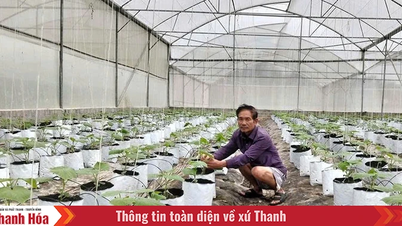

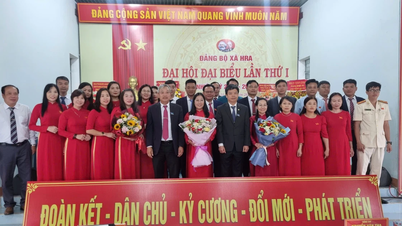


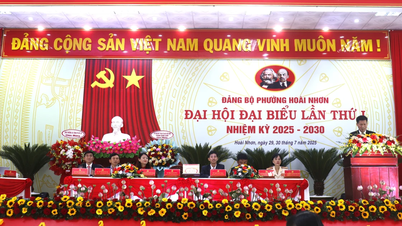
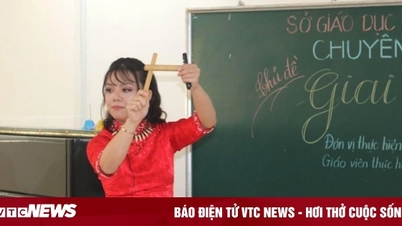





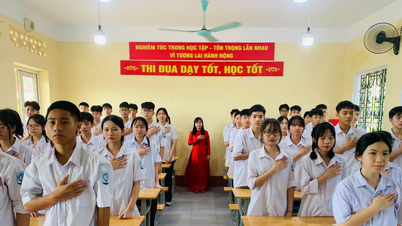







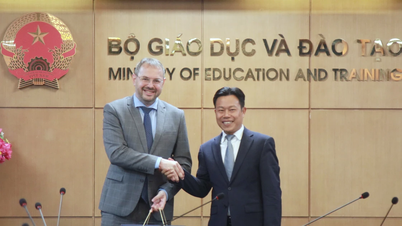




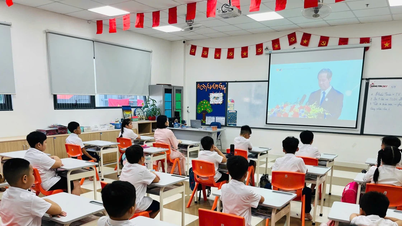





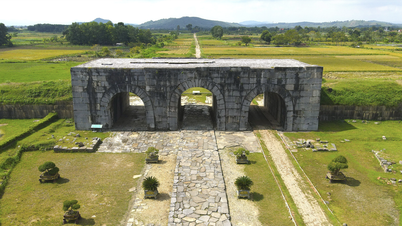













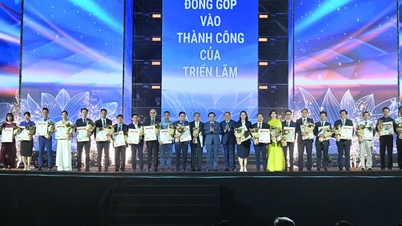








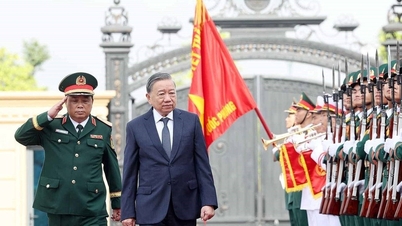









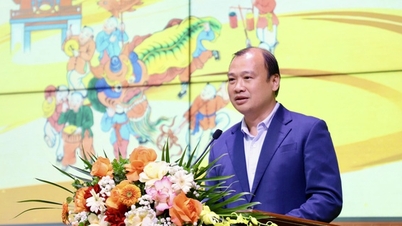


![[Live] Closing of the National Achievements Exhibition "80 Years of Journey of Independence - Freedom and Happiness"](https://vphoto.vietnam.vn/thumb/402x226/vietnam/resource/IMAGE/2025/9/15/de7064420213454aa606941f720ea20d)






















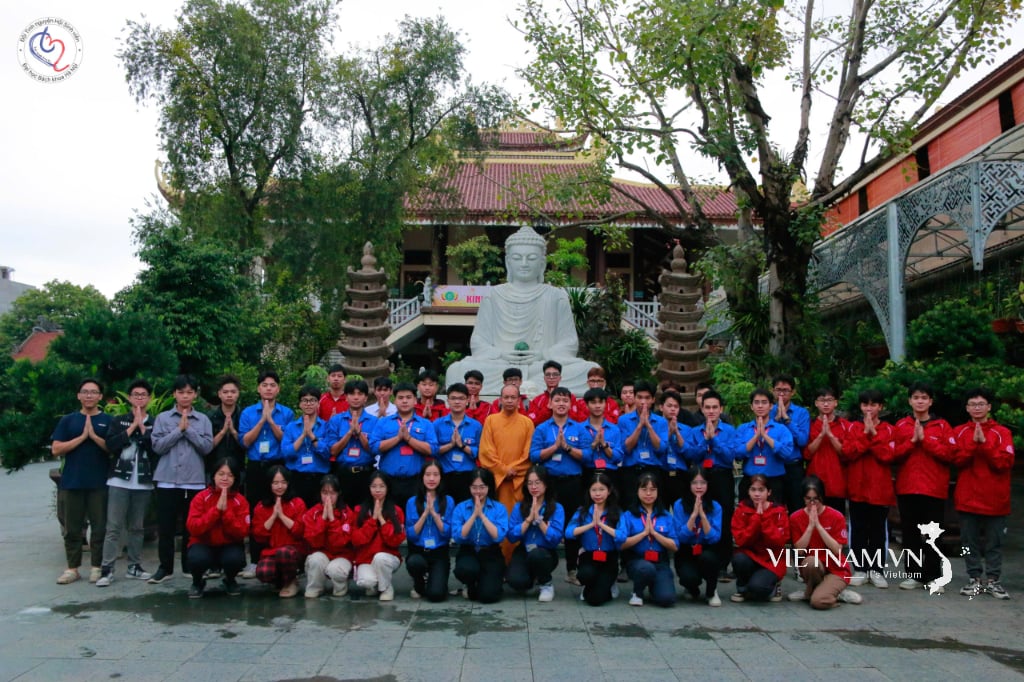


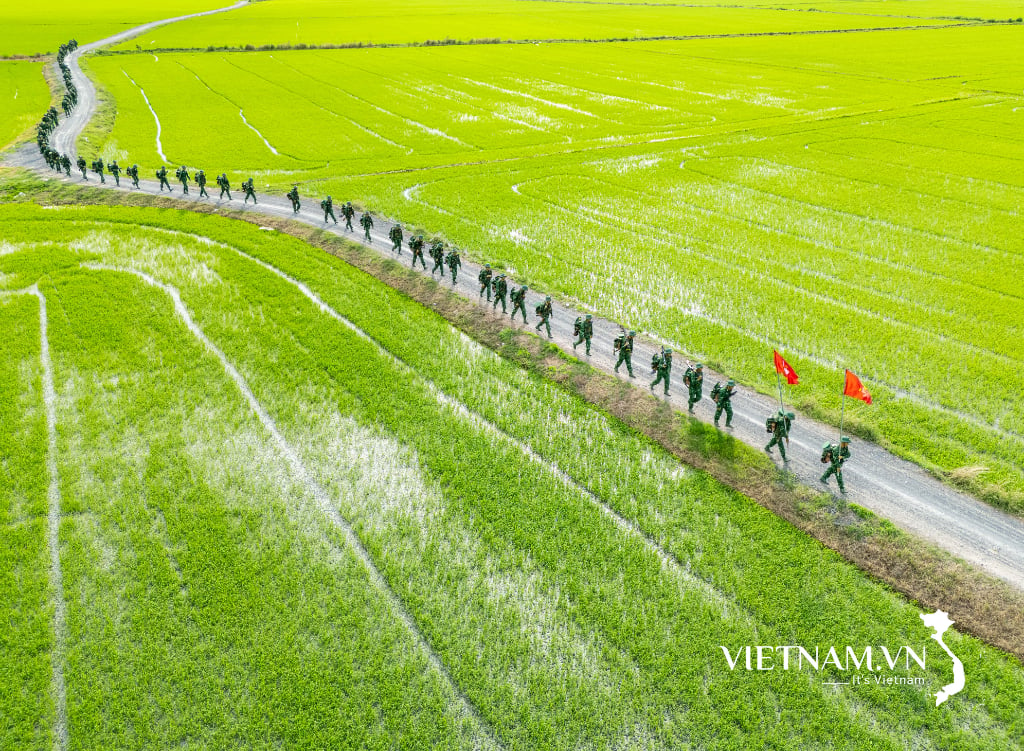
Comment (0)